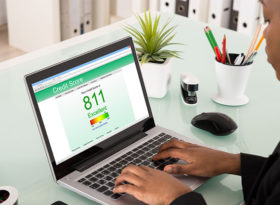 Budgeting
Budgeting
Tips to help you get by on a student budget
For most students, heading off to university and moving out of home is an exciting time, however moving away from mum and dad often means becoming financially independent as well, which can be tough at first. Learning to manage your own budget is a critical skill you need to develop, and if you stick to these simple tips you will soon see that living on a student budget is highly achievable and shouldn’t hold you back from enjoying student life.
Plan your budget
We all know that life is full of unexpected events and twists, but your incomes and expenditures are not as unpredictable as you may believe. Depending on your source of income such as allowances from your parents, student loans or part-time jobs, you can easily estimate how much you have to spend each week and each month. For expenditures, there are fixed living expenses such as accommodation, electricity, water, phone, internet and basic grocery items. If you subtract your fixed expenses from your income, you can roughly know how much you have left for miscellaneous spending. It is also important to keep in mind that you might have to occasionally spend large amounts of money on items such as study materials, medications, car registration etc.
Keep track of your finances
Keeping a record of all of your earnings and purchases is a useful habit that you should acquire to help you know your exact financial position. Every night before going to bed, spend a few minutes putting all of your expenses during the day, and your income if any, into a budget spreadsheet. Keeping the receipts is also handy in case you forget the amount of money you spend (or you need to return items at a later date). Another benefit of this habit is that after time, when you look back at all your purchases, you can work out which items you really needed and which you can probably dowithout next time.
Start a saving account
Based on your budget planning, you should set a goal to save a specific amount of money a month. The goal should be reasonable so that it won’t have a major impact on your lifestyle. With a dedicated savings account, not only can you earn interest but you can also quickly accumulate a handy sum of money to make planned purchases or to use for emergency funds. Just don’t get tempted to take money out unless you need to! Many Aussie banks offer student saving accounts with zero fees and additional benefits, so do your research before choosing where to put your cash.
Take a part-time job
When thinking about budgeting, the key is not only reducing your expenditures but also finding some ways to increase your income. Aussie students often take on part-time jobs which offers both working experience and extra income. When you are working you are generally not spending money, and there is nothing like hard work to help you understand the real value of money. However, as a student, your first task is studying so be sure not to let your job distract you from learning.
Save on food
Although food is part of your fixed expenses because you cannot live without it, there are many ways you can save on food and still live healthily. First of all, preparing your own food is much cheaper than eating out even at the cheapest restaurants and you can be certain that what you eat is safe and good for your health. Besides, you should set a strict rule on eating out, and only allow yourself to do so a few times a month. Second, you can try buying groceries at the local farms or farmers’ market, which often gives a better price especially if you are good at bargaining! If your financial situation is really serious, don’t feel bad about taking free food from the local food giveaway centres, or participating in some charitable work in exchange for food.
Say no to impulse shopping
Believe it or not, impulse shopping is the biggest danger to your whole budget planning. To save yourself from impulsive purchases, you should always make a list of what you need to buy before going to shop and try to not wander around but only stick to the area where you get your items. Whenever you have an urge to buy something not on the list, tell yourself to wait for at least one week to come back and buy it later. Usually, after a few days or a week, your impulse fades away, and you have saved yourself some cash!
Take advantage of student discounts
As a student, you are often entitled to more free or discounted services than you may realise. For instance, most movie theatres, entertainment centres and parks have discount price for students andsenior citizens. A lot of restaurants around your university campus might have good deals for students or offer discounted prices. Universities frequently partner with many bookstores, banks, retailers, medical centres and local stores to give students more benefits when using their services. There are many websites and other online resources dedicated to collecting and providing this information and you should definitely check them out!
The above-mentioned tips can really help you to manage your student budget, avoid many financial troubles and finish university as a money savvy graduate. However, if there are occasions when you fall short of money and need to borrow, make sure you do thorough research to find a low-rate student loan or credit card to obtain additional funds. Many lenders, banks and government programmes offer student loans and credit cards with great rates and flexible payment terms. Just make sure you stick to your repayment plan so you don’t wind up with unnecessary debt!




